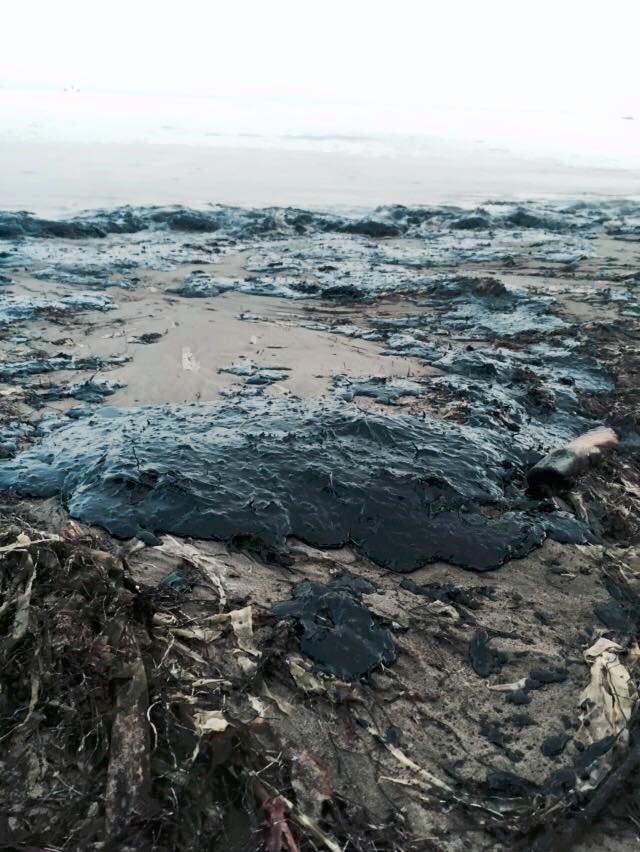

Sitting through the all-day Plains sentencing hearing yesterday on punishment for their felony conviction for causing the 2015 Refugio oil spill was a lesson in our inability to hold oil companies like Plains accountable for even the most egregious criminal acts. Here are my main takeaways.
We have some big loopholes in the law:
- Penalties for oil releases are radically insufficient. The judge fined Plains only $3.3 million dollars, which is far less than the $1.2 billion that the prosecutor suggested. In so doing, the judge said he was imposing the maximum sentence allowable, but he recognized that it was insufficient to deter future criminal conduct or get the company or industry to change its ways. Plains is a multi-national, multi-billion dollar company celebrating record profits. The fine is capped per day and its very low, no matter how much oil is released and the economic and environmental devastation it causes. Judges should have leeway to impose much greater penalties.
- Corporations should not be able to get out of probation and the conditions it requires. The prosecutor also recommended probation and various conditions, such as not being to restart their leaky and corroded pipeline, full restitution to victims, a letter of apology, community service by executives, and oversight of any new pipeline, but since an individual can opt out of probation and take jail time instead, Plains claimed they have the right to opt out of probation too. The judge noted that he can't send a corporation to jail and there is no remedy to enforce probation except sending someone to jail, so corporations can just opt out. The judge explained that this is a loophole in the law. Corporations should not be able to opt out of probation, and there should be ways to force compliance with the terms of probation.
The claim that oil production is highly regulated and safe is a lie.
- The prosecutor made a compelling case that Plains has a pattern of negligence resulting in many major oil spills in the United States and Canada that have polluted drinking water and devastated ecosystems. They have been subject to consent decrees and civil suits. Because of the great difficulty and expense, very rarely is an oil company subject to criminal prosecution. The case against Plains took months. They went through 800 prospective jurors before finding an impartial jury who could sit through such a long and grueling trial. After that jury found Plains guilty of a felony, and that finding was upheld, Plains still refused to own up to their crime, got a slap on the wrist fine, and will likely go on to contest that too.
- An oil company owner recently told me that he thinks regulation in California is even less stringent than in Texas. This verdict certainly shows that there is no real way to hold companies accountable. They also have the resources to lobby in Sacramento and fund candidates who will protect them from oversight and keep us addicted to fossil fuels. The fact that fossil fuel lobbyists are in charge of the EPA and the Dept of Interior is only the most glaring example of a larger problem of regulatory capture, that is, foxes increasingly guarding the henhouse.
As the saying goes, fool me once, shame on you; fool me twice, shame on me.
Santa Barbara county has experienced oil spill after oil spill, not just the 1969 spill and the Refugio spill, but 400,218 gallons in Avila that resulted in whole town being razed and rebuilt, 12 million gallons spilled in Guadalupe, a toxic waste dump in Casmalia started by an oil company that is now a superfund site that will have to be contained for a thousand years, and chronic violators like Greka that spill repeatedly. This sentencing hearing demonstrates one of the reasons this keeps happening. We cannot hold these companies accountable, and they have no meaningful incentive to protect public health and safety from their inherently hazardous operations.
Plains wants to build a whole new pipeline in Santa Barbara. We would be fools to give them a second chance.
